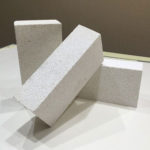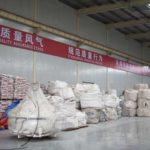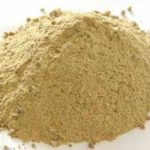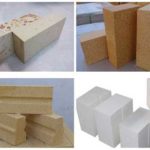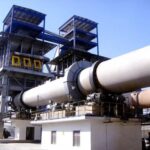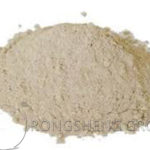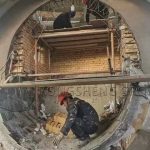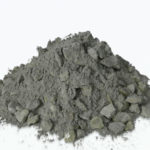Refractory materials are widely used in industrial fields, including steel, ceramics, chemical industry, and other industries. Among the types of refractory materials, aluminum silicate has gradually received widespread attention due to its unique properties and advantages. Aluminum silicate is a refractory material based on alumina and silica. It has the advantages of high strength, high thermal stability, and low thermal conductivity. RS Kiln Refractory Factory, which has an in-depth understanding of the application and advantages of aluminum silicate refractory materials, can provide high-quality high-temperature furnace lining insulation material products such as high-quality aluminum silicate double-sided needle punched blankets and aluminum silicate fiber boards.
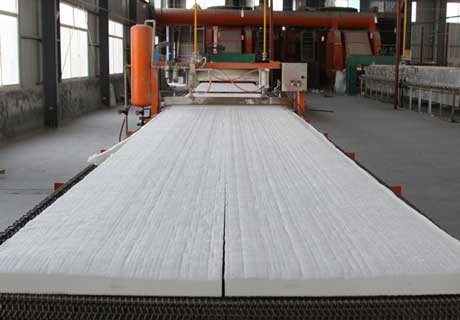
Performance Advantages of Aluminum Silicate Refractory Materials
- Thermal insulation effect. Aluminum silicate insulation material has excellent thermal conductivity, so its thermal insulation effect is very significant. In winter insulation, compared with other materials, its insulation effect is more obvious and can effectively save energy.
- Durability. Aluminum silicate insulation material has excellent durability, is not easily affected by the external environment and climate, and has a long service life. At the same time, its service life is also affected by the actual application environment.
- Shock resistance. Due to its high density and hardness, aluminum silicate insulation material has very strong earthquake resistance and can effectively protect the safety of buildings.
- Environmentally friendly. Aluminum silicate insulation material is an environmentally friendly material, a single-component material, non-toxic and harmless, and complies with national construction standards. It has excellent sound absorption, high-temperature resistance, water resistance, freezing resistance, low shrinkage rate, overall seamlessness, and no cold bridge or thermal bridge formation.
- High-temperature stability. Aluminum silicate has high thermal and chemical stability and can withstand extreme environments such as high temperatures and high pressure. Not easily corroded by water, acid, alkali, and other substances. Not easy to catch fire. It can withstand high temperatures and the maximum operating temperature can reach 1500℃.
- The seal is secure. The molding is stable, the bonding force is strong, and the construction is convenient, which can effectively shorten the construction period. And it is not limited by the geometric shape of the insulated body. Especially suitable for interior and exterior wall insulation, central air-conditioning air supply systems, and heterogeneous surface insulation. It can prevent energy loss caused by gap leakage in traditional materials and form an overall seal.
Application of Aluminum Silicate Refractory Materials
Due to the good performance of aluminum silicate fiber refractory materials, aluminum silicate insulation materials are widely used in fire protection and heat insulation in the power industry, electric boilers, steam turbines nuclear power insulation, and the shipbuilding industry. Fire protection and heat insulation of fire doors in the construction industry, wall lining of high-temperature reaction equipment, and heating equipment in the chemical industry. Automobile, train manufacturing, fire protection, heat insulation, kiln lining, furnace door, and other fields.
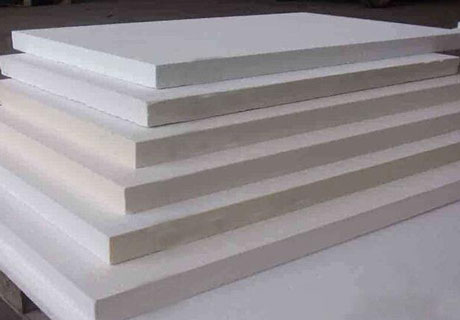
Advantages of Aluminum Silicate Refractory Materials Compared to Asbestos and Ceramic Fibers
- Compared with asbestos, the advantage of aluminum silicate refractory materials is its higher durability and service life. Although asbestos is low in cost, it is easily damaged in high temperatures and chemically corrosive environments and needs to be replaced frequently, increasing maintenance costs. Aluminum silicate can operate stably for a long time, reducing the frequency of replacement and maintenance and improving work efficiency.
- Compared with ceramic fibers, aluminum silicate refractory materials have obvious advantages in high-temperature stability. Although ceramic fibers have low thermal conductivity, they are prone to thermal deformation and shrinkage in high-temperature environments, affecting their performance. Aluminum silicate can maintain structural stability and better adapt to high-temperature working environments.
To sum up, aluminum silicate refractory materials have significant advantages in high-temperature stability, corrosion resistance, and low thermal conductivity. It has been widely used in many industrial fields such as steel, ceramics, and chemical industry. Compared with asbestos and ceramic fiber, aluminum silicate refractory materials have higher durability and service life and are better adapted to complex working environments. With the continuous development of industrial technology, the application prospects of aluminum silicate refractory materials will be broader. It will play a more important role in ensuring industrial production efficiency, improving product quality, and reducing operating costs.
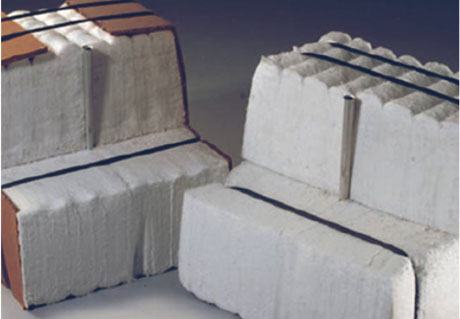
Aluminum Silicate Refractory Material Has a Good Thermal Insulation Effect
Aluminum silicate insulation material is a heat insulation material often used in the petrochemical industry and machinery industry and has a wide range of uses. The ultra-low thermal conductivity can be said to be its strengths, including lightweight, high toughness, and good thermal stability. Why does it have such a good thermal insulation effect?
There are pores between the aluminum silicate fibers. When the specific gravity of the fibers is the same, the smaller the diameter of the fibers, the smaller the pores between the fibers, and the greater the barrier to heat transfer. For ordinary items, the heavier they are, the faster they conduct heat. But it is not absolute. Aluminum silicate fiber is light and conducts heat very slowly. So it has a very good thermal insulation effect. But when the aluminum silicate fiber cotton comes into contact with water, the water droplets will become a heat-conducting medium in the pores. This accelerates the transfer of heat, causing the aluminum silicate fiber cotton to lose its thermal insulation function.
The thermal stability of aluminum silicate insulation materials is unmatched by some other lightweight refractory materials by RS Refractory Kiln Refractory Materials Factory. For example, refractory bricks will crack after being exposed to rapid cooling and hot environments many times, especially during the use of brick kilns. Serious cases may cause the brick kiln to collapse.
Of course, aluminum silicate insulation materials are not omnipotent. Before using them, you must understand the atmosphere of the working environment in which they are located and determine the atmosphere in the furnace. If it is corroded during use, the thermal insulation performance of the product will be quickly reduced. Certain components in the furnace gas, such as H2, CO, SO2, NH3, ammonia, alkali metals, fluorine, chlorine, and sulfite ions, can affect the thermal insulation performance of aluminum silicate insulation materials. Aluminum silicate fiber modules. Therefore, in addition to understanding the use environment during use, you must also be careful not to contact water, otherwise aluminum silicate will be of no use.
Leave Your Requirements on RS Kiln Refractory Bricks And Castable Materials! We Will Reply You In 12 Hours!:
